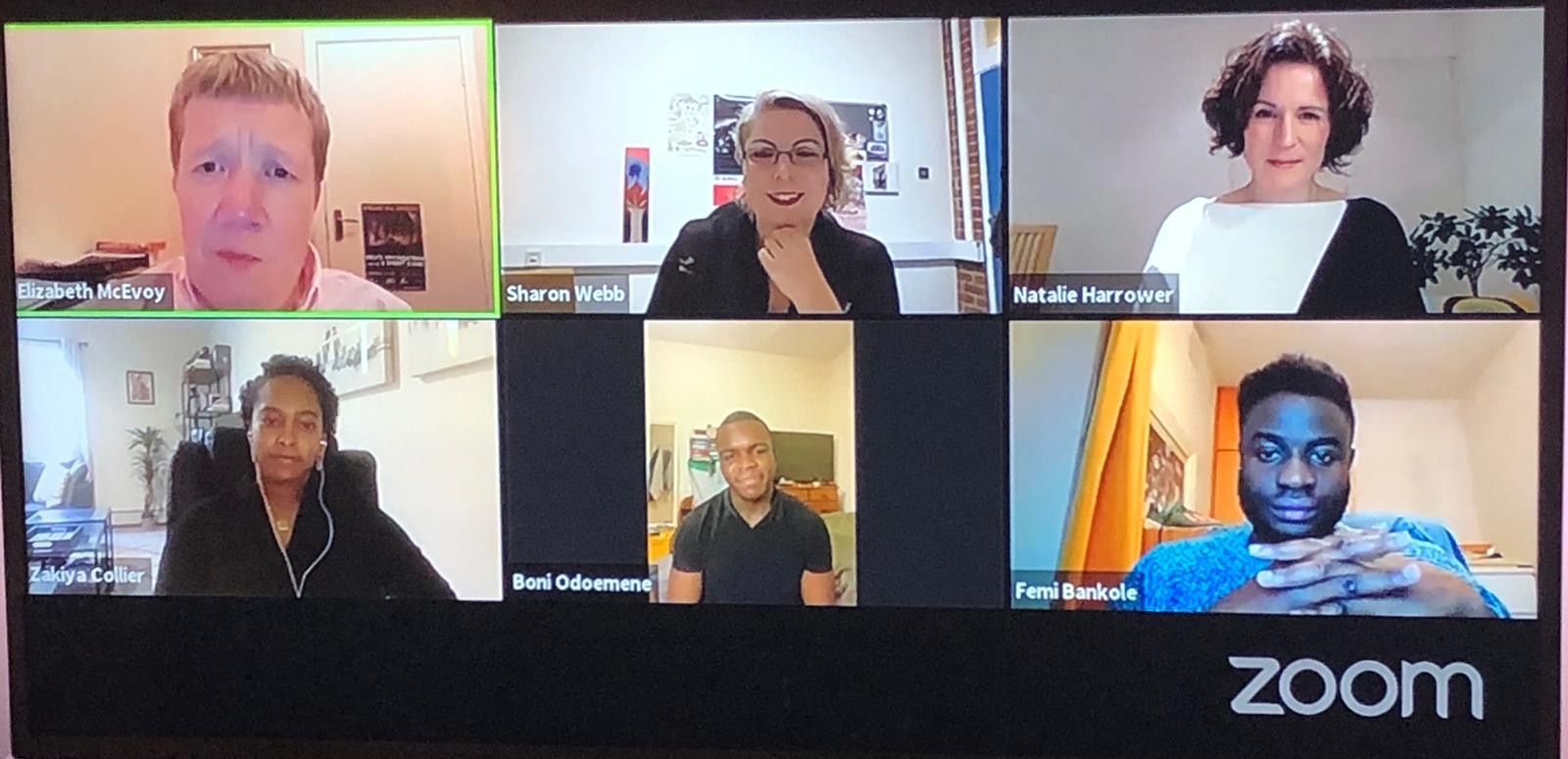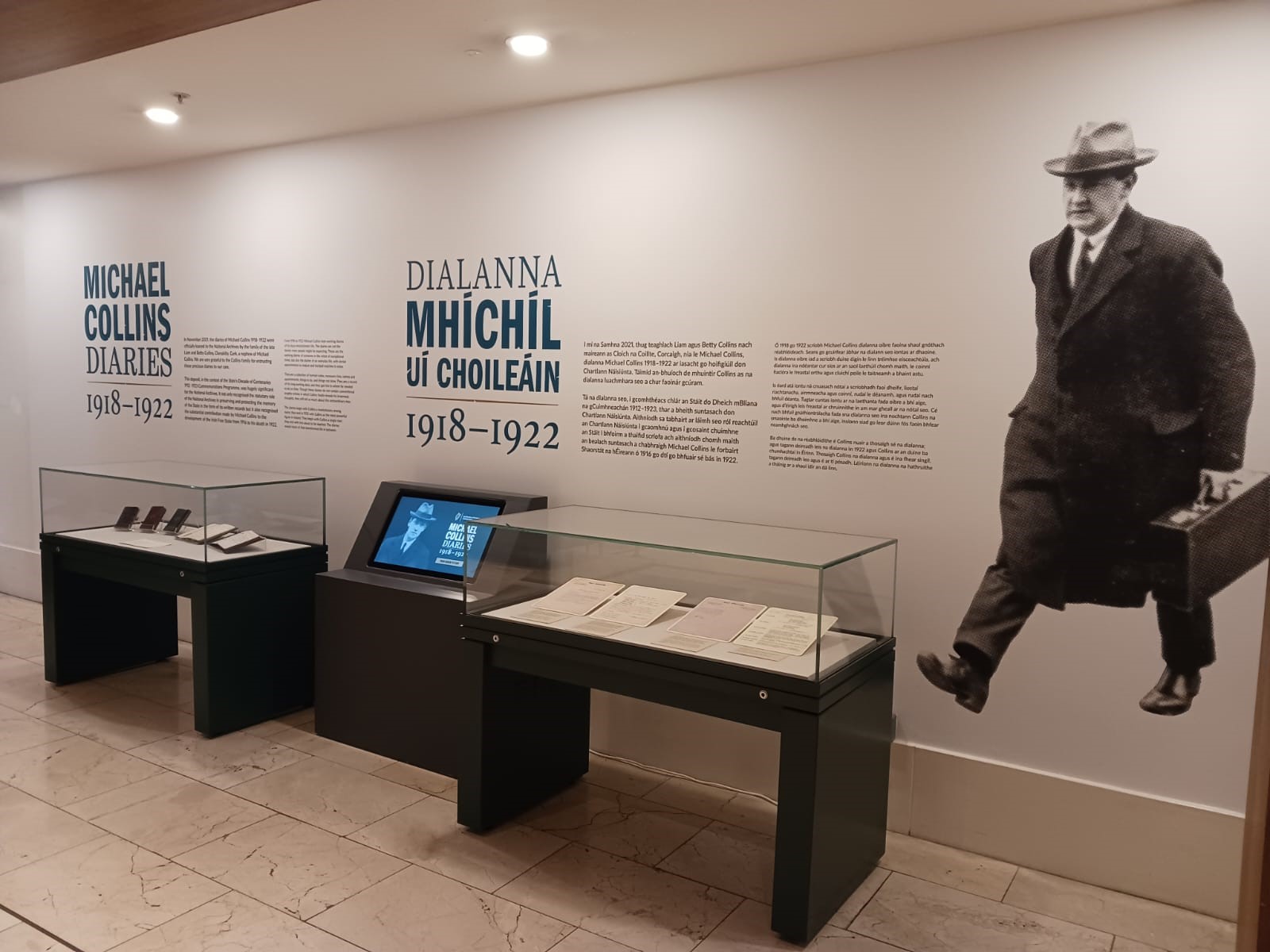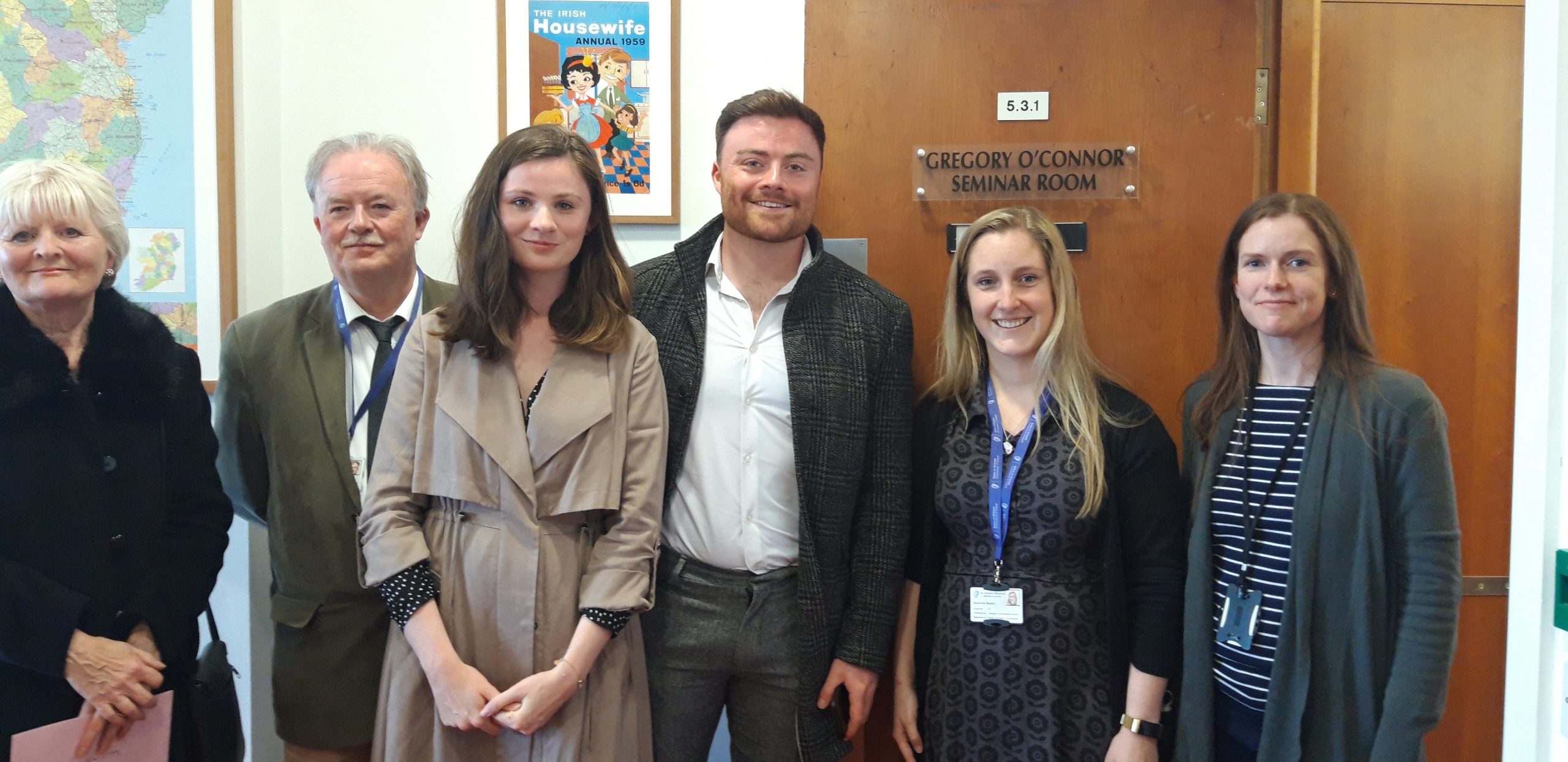Behind the Scenes
Behind the Scenes: Talk-‘Archival Activism: Community-Centred Approaches to Archives’

A collaborative webinar, organised by the National Archives and Digital Repository of Ireland was held online on Thursday, 22nd October 2020. The second event in our online autumn evening lecture series, ‘Archival Activism: Community-Centred Approaches to Archives’, reached an international audience of 156 people.
The event consisted of speakers who discussed the concept of archival activism; that is to say the work of community archivists and community initiatives formed to fill the space or gaps that traditional archives do not cover. The topic is hugely relevant today, as some of these initiatives have formed as direct responses to movements such as the Black Lives Matters in the United States, and even wider topics like Covid-19.
The first speaker of the evening was Dr Sharon Webb, a digital humanities professor, whose research focuses on community archives and digital preservation. She put into context the term “archival activism” and explained how it is important to consider those who shape archives and who choose their content. The double erasure of marginalised communities from the archival record was also emphasised.
The second guest speaker of the evening was Boni Odoemene, co-founder of ‘Black and Irish’, a social media community page on Instagram. The page was founded in June 2020 in response to the Black Lives Matters movement in the United States. Boni and his two co-founders, Femi Bankole and Leon Diop, created the page as a safe space for people to share their experiences of the black Irish community; in effect capturing an unofficial history of the black and Irish experiences in Ireland. The account is now administered and researched by a team of 16 people, all working voluntarily to create and share content.
During Black History Week and throughout Black History month their Instagram page created a number of posts exploring little known events and facts from throughout history, such as the story of Rachael Baptist, an Irish singer from 18th century. Boni explained that inclusivity is at the heart of what they do for the ‘Black and Irish’ Instagram page and they want to continue sharing their collective story.
The final speaker of the evening was digital archivist, Zakiya Collier. She began her presentation by raising the point that black and Irish people are not being represented in the traditional archival collections or in school curriculums. She underlined the importance of self-curated, collaborative practices that have been developed by community archivists, specifically mentioning Boni’s work with the ‘Black and Irish’ Instagram page and the importance of empowering people to do this work.
Zakiya noted the use of Instagram and social media as a platform to bridge gaps in archival collections, that people are turning to novel means to archive their lives. She explained that social media gives voice to ongoing conversations which wouldn’t normally occur in a traditional archive. However, these online communities are extremely vulnerable; social media platforms are not created with the intent of being an archive. According to Zakiya, this is where traditional archives can help to form partnerships to adopt and archive more diverse cultural collections. She commended the Digital Repository of Ireland for their support of community-based projects and initiatives by creating community awards in order to provide resources and basic needs.
Femi Bankole, a co-founder of the ‘Black and Irish’ Instagram page, joined the question and answer session which ended with a touching quote from Boni Odoemene stating “if fear was darkness, information is light”.
For those unable to attend the webinar event, it was recorded and will be available to view on the Digital Repository of Ireland’s website shortly.
Suzanne Bedell
Archivist


